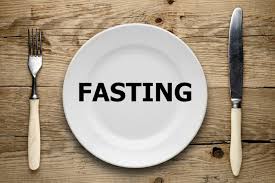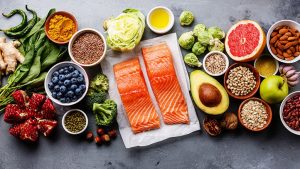Introduction
By: Dr. Keith Kantor
There are several popular diets that have shown great success in improving health and increasing vitality and energy, but it is important to realize that the way we eat should be customized to how our body reacts and feels when eating a certain way. If a diet makes you feel tired, weak, upsets your digestion or makes your hair fall out it is probably not the diet for you. Always listen to your body and know that some diets do not work for everyone.
Ketogenic Diet

The keto diet works for such a high percentage of people because it targets several key, underlying causes of weight gain including hormonal imbalances, especially insulin resistance coupled with high blood sugars especially in those who have type 2 diabetes or hypoglycemia. The common cycle of restricting and “binging” on empty calories due to hunger that so many dieters struggle with is not common with those who adopt the keto lifestyle and the healthy whole foods that are on it’s food list.
Rather than counting calories, small portion sizes, and excessive exercise, which require unrealistic will power (especially when your energy levels are low due to restriction), the ketogenic diet takes an entirely different approach to weight loss and health improvements. It works because it changes the “fuel source” that the body uses to stay energized. The body goes from burning glucose (or sugar) to dietary fat and fat stores within the body. Combining the keto diet with intermittent fasting can provide long-term results without the starvation or suffering.
Intermittent Fasting

Eating all throughout the day causes fluctuations in insulin levels and it does not give the body a chance to learn how to use its own stored fat for fuel and energy. People who graze on mini meals may suffer from headaches; feelings of low blood sugar and intense hunger cravings, these symptoms are a result of training the body to use the food as a fuel source as opposed to fat stores.
Intermittent fasting has been shown in numerous clinic studies to increase longevity, improved brain function, increased insulin regulation, stronger resistance to stress, improved satiety, benefits of endogenous hormone production and increased mental clarity. In addition to these benefits, The NeuroChem Journal released a study that linked intermittent fasting to improving the success rate of those in substance abuse rehabilitation programs, due to its ability to suppress the opiate receptors.
Mediterranean Diet

The Mediterranean diet is a healthy long term diet that consist of heart healthy fats including olive oil, nuts, seeds, whole grains, quality cheese, meat, seafood, herbs, spices, fruits and vegetables.
The basic concept of the Mediterranean diet is to eat whole unprocessed foods with a balance of high fiber grains, heart healthy fats, and quality protein. This diet is less rigid then most plans making it easy to follow and be consistent with. The key to long-term health, vitality and weight management is to find a plan that works with your lifestyle. The Mediterranean is not only easy to follow but the high fiber content and anti-inflammatory healthy fats and fruits and vegetables will lower your risk for chronic disease specifically heart disease and Type 2 Diabetes.
According to the Mayo Clinic this diet has been associated with a lower level of oxidized low-density lipoprotein (LDL) cholesterol — the “bad” cholesterol that’s more likely to build up deposits in your arteries.
In fact, a meta-analysis of more than 1.5 million healthy adults demonstrated that following a Mediterranean diet was associated with a reduced risk of cardiovascular mortality as well as overall mortality.
The Mediterranean diet is also associated with a reduced incidence of cancer, and Parkinson and Alzheimer’s diseases. Women who eat a Mediterranean diet supplemented with extra-virgin olive oil and mixed nuts may have a reduced risk of breast cancer.
Vegan Diet

A vegan diet seems like it is extremely healthy and those who follow it will improve their health from simply being vegan but that is not always the case, it is important to still remain conscious of macronutrient (carbohydrates, fats, and protein) intake daily.
If a vegan diet is not balanced and does not contain enough fiber, protein, or healthy fats it could actually cause hormone imbalances, specifically insulin, resulting in weight gain and other negative symptoms like low energy, nutrient deficiencies, hair loss, etc.
It is essential to track macronutrients often to ensure that you are getting adequate protein, carbohydrates, healthy fats, water, and fiber daily.
Fat 50-60%
Carbs – 20-30%
Protein – 20%
Conclusion
When trying out different diets it is important to take note of how your body feels while you are on the plan. If you have any health conditions like diabetes, high blood pressure, thyroid disease, etc. you should be under a health professional’s

